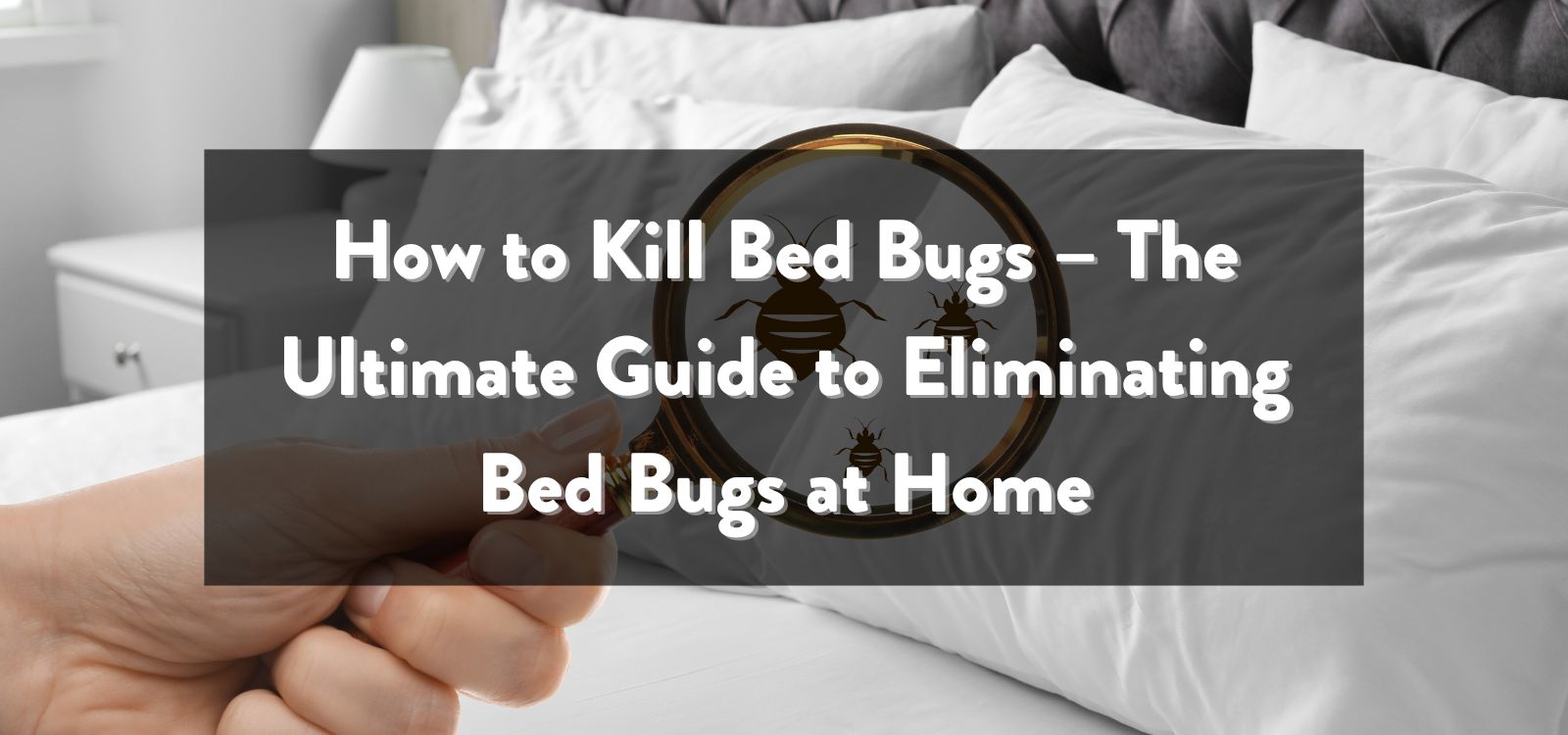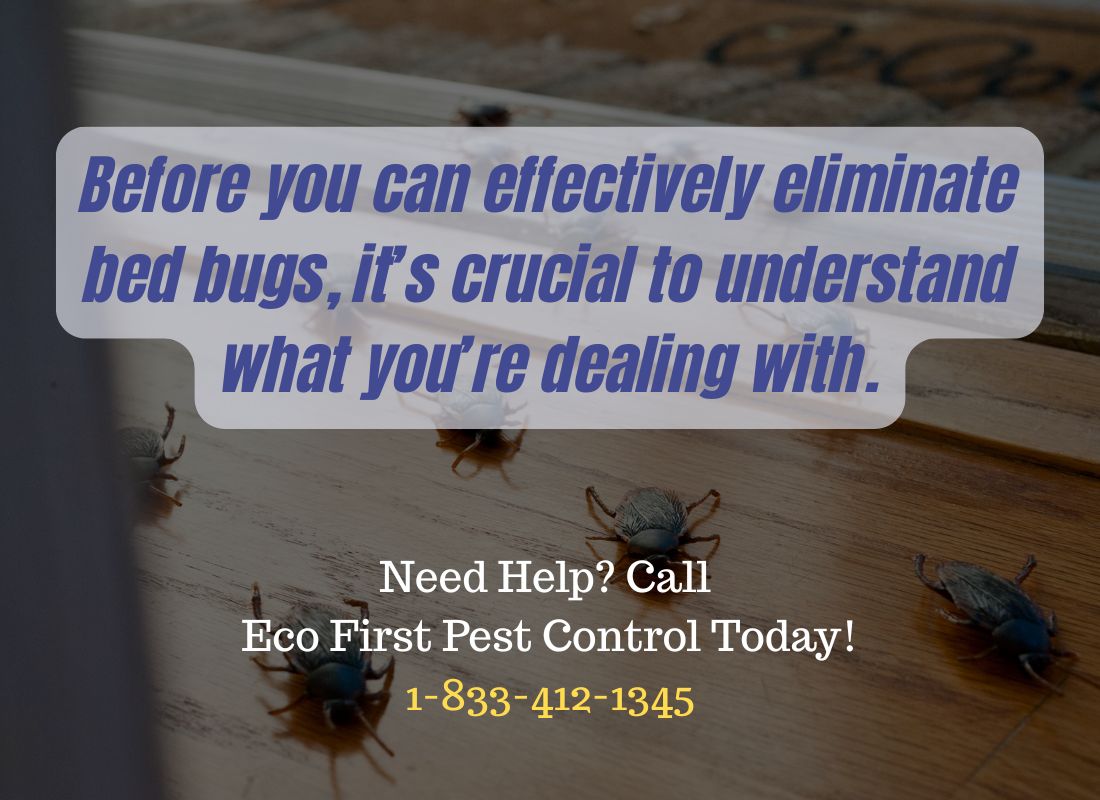
How to Kill Bed Bugs – The Ultimate Guide to Eliminating Bed Bugs at Home
How to Kill Bed Bugs – The Ultimate Guide to Eliminating Bed Bugs at Home
Bed bugs can be a nightmare, silently creeping into our beds and disrupting our peace. These tiny, resilient pests are known for their rapid multiplication and resistance to many common insecticides. However, with the right strategies, you can eliminate them for good. In this guide, we’ll explore the most effective ways to kill bed bugs, including using heat, chemical treatments, and natural remedies. Let’s dive into the details.
Understanding Bed Bugs – Know Your Enemy
Before you can effectively eliminate bed bugs, it’s crucial to understand what you’re dealing with. Bed bugs (Cimex lectularius) are small, reddish-brown insects that feed on the blood of humans and animals. They are nocturnal, hiding in cracks and crevices during the day and emerging at night to feed.

Characteristics of Bed Bugs:
- Flat, oval-shaped bodies, typically 5-7 mm in length.
- Wingless, but fast crawlers.
- Can survive months without feeding.
- Resilient to many common insecticides.
- Thrive in warm environments (70-80°F or 21-27°C).
Why Are Bed Bugs So Hard to Kill?
Bed bugs have developed resistance to many pesticides, making them tough to eliminate. They also reproduce quickly, with a single female laying up to 500 eggs in her lifetime. These eggs hatch within 6 to 10 days, creating a rapidly growing infestation if left unchecked.
Signs of a Bed Bug Infestation
Detecting bed bugs early is crucial for effective control. Here are some telltale signs:
- Bite Marks: Small, red, itchy bites often in clusters or rows.
- Rusty Stains on Sheets: Caused by crushed bed bugs or their fecal matter.
- Bed Bug Shells: Shed exoskeletons from growing bed bugs.
- Musty Odor: A sweet, musty smell in severe infestations.
- Live Bed Bugs: Small, reddish-brown bugs hiding in mattress seams, furniture cracks, or electrical outlets.
If you notice any of these signs, it’s time to act quickly to prevent a full-blown infestation.
How to Kill Bed Bugs – Proven Methods
1. Heat Treatment – The Most Effective Option
Heat is one of the most effective ways to kill bed bugs and their eggs. Bed bugs die at temperatures of 118°F (48°C) within 90 minutes, and their eggs are destroyed at slightly higher temperatures. Here’s how to use heat effectively:
- Hot Water: Wash infested clothing and bedding in hot water (at least 140°F or 60°C).
- Dryer Treatment: Dry clothes on the highest setting for at least 30 minutes.
- Professional Heat Chambers: Hire professionals for whole-room heat treatments that reach 135°F (57°C) or higher.
- Steam Cleaning: Use a handheld steamer to treat mattresses, furniture, and carpets.
👉 For professional help, consider Eco First Pest Control’s Bed Bug Control Services for safe and effective heat treatments.
2. Cold Treatment – Freezing Bed Bugs to Death
Bed bugs can also be killed using extreme cold. Freezing temperatures below 0°F (-18°C) for at least 4 days can eliminate them. However, this method can be less reliable in comparison to heat because of the time required.
3. Chemical Treatments – Insecticides and Sprays
Chemical sprays are another common approach:
- Permethrin and Pyrethroids: Widely used but may not work on resistant bed bugs.
- Insect Growth Regulators (IGRs): Disrupt the bed bugs’ reproductive cycle.
- Silica Gel and Diatomaceous Earth: Physical killers that dry out bed bugs’ exoskeletons.
4. Natural Remedies – Safer at Home Options
Some people prefer natural alternatives like:
- Diatomaceous Earth – Cuts through bed bug exoskeletons, leading to dehydration.
- Vinegar and Baking Soda – Can repel but rarely kill bed bugs effectively.
- Essential Oils (Tea Tree, Lavender, Peppermint) – Have limited effectiveness.
5. Professional Extermination – When to Call the Experts
If the infestation is severe, it’s often best to call professionals like Eco First Pest Control for comprehensive bed bug removal. Professionals use a combination of heat, chemical treatments, and preventive strategies to ensure long-term relief.
Common Household Products – Do They Work?
When battling bed bugs, many people reach for common household items, hoping for a quick fix. But do these everyday products actually work against bed bugs? Let’s break down some of the most popular DIY methods:
1. Does Alcohol Kill Bed Bugs?
Yes, isopropyl alcohol (rubbing alcohol) can kill bed bugs on direct contact. It works by dissolving the outer shell of the bed bug, causing it to dry out and die. However, alcohol has some serious drawbacks:
- Low Residual Effect: It only kills on contact, with no lasting impact.
- Fire Hazard: Highly flammable and can pose significant risks if used improperly.
- Ineffective Against Eggs: Alcohol doesn’t penetrate eggs well, making it less effective in the long run.
👉 For a safer and more reliable approach, consider professional bed bug control services.
2. Does Lysol Kill Bed Bugs?
Lysol can kill bed bugs on contact, but it is not a practical long-term solution. It primarily acts as a disinfectant and lacks the residual power needed to prevent reinfestation. Additionally, it doesn’t effectively kill bed bug eggs, making it an incomplete approach.
3. Does Vinegar Kill Bed Bugs?
Vinegar’s acidic nature can kill bed bugs on contact by disrupting their nervous system. However, like alcohol, it only works when directly sprayed on the bugs, and it can leave a strong odor. It also fails to kill eggs, making it a temporary fix at best.
4. Does Baking Soda Kill Bed Bugs?
Despite popular belief, baking soda is not a proven bed bug killer. It may dry out bed bugs if they come into direct contact, but its effects are minimal, and it doesn’t penetrate the bed bugs’ tough exoskeleton effectively.
5. Does Bleach Kill Bed Bugs?
Bleach can kill bed bugs by oxidizing their outer shell, effectively suffocating them. However, it can be harmful to your health and damage your furniture and fabrics. Like alcohol, it’s a contact killer with no residual effect.
Preventing Future Bed Bug Infestations
Killing bed bugs is just the first step. To ensure they don’t come back, you need a solid prevention plan. Here’s what you can do:
1. Use Bed Bug-Proof Mattress Covers
Encasing your mattress and box spring in bed bug-proof covers can trap any remaining bugs inside and prevent new ones from getting in.
2. Regular Cleaning and Vacuuming
- Vacuum your mattress, bed frame, and carpets regularly.
- Use a vacuum with a HEPA filter for better suction and dust containment.
- Dispose of vacuum bags immediately to prevent reinfestation.
3. Reduce Clutter
Bed bugs love to hide in cluttered areas. Declutter your home to reduce potential hiding spots.
4. Inspect Secondhand Furniture
Always inspect used furniture and clothing for signs of bed bugs before bringing them into your home.
5. Use Bed Bug Interceptors
Place these devices under bed legs to catch any bed bugs trying to climb up.
6. Professional Inspections
Consider regular inspections from pest control professionals like Eco First Pest Control to catch early signs of infestation.
FAQs About Bed Bug Elimination
Q1. Can you kill bed bugs in the dryer?
Yes, running infested clothes or bedding through a dryer on high heat (at least 120°F or 49°C) for 30 minutes will kill bed bugs and their eggs.
Q2. Does diatomaceous earth kill bed bugs?
Yes, diatomaceous earth is a natural, chemical-free powder that kills bed bugs by dehydrating them. It’s an effective long-term treatment when applied correctly.
Q3. How long does it take for rubbing alcohol to kill bed bugs?
Rubbing alcohol kills bed bugs instantly on contact, but it doesn’t have any lasting residual effect.
Q4. Does UV light kill bed bugs?
No, UV light alone is not an effective bed bug killer. It can help detect them but won’t eliminate them.
Q5. Can hand sanitizer kill bed bugs?
Technically, yes, if it has a high alcohol content, but it’s not practical for treating an infestation.
Final Thoughts
Bed bugs can be a persistent problem, but with the right approach, you can eliminate them for good. Whether you choose to use heat treatments, natural remedies, or professional pest control, it’s essential to act quickly and stay vigilant. Don’t let these tiny pests disrupt your peace – take back your home today.
👉 For a professional, hassle-free solution, consider contacting Eco First Pest Control for expert bed bug removal.